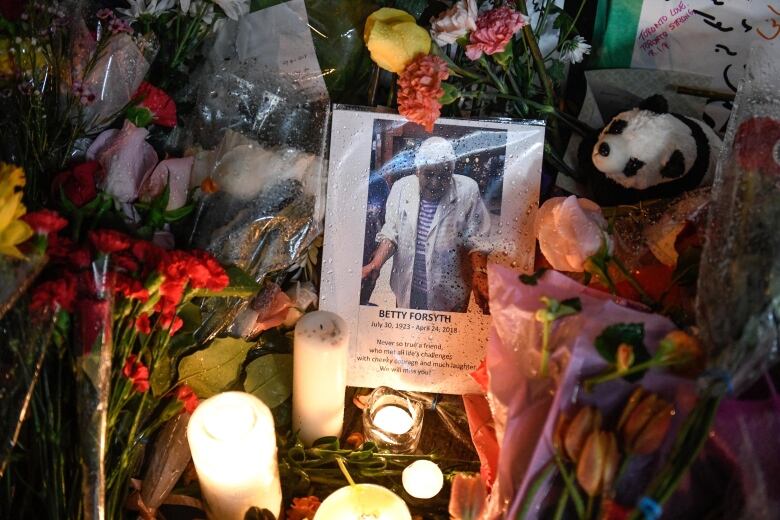Michael's essay: The horror of mass murder by vehicle comes to Toronto
A Monday afternoon in early spring, finally a warming sun releasing us from the relentless grip of a bleak and heedless winter.
A white Ryder van, travelling south on the busiest and longest street in Canada, jumps the curb and proceeds to race along the sidewalk striking down people like five pins.
The driver was trying to kill as many people as he could. The count by day's end was horrific: 10 dead, 14 injured, some grievously.

The area in the north end of the city, far away from the lake, is one of banks, shops, high-rise office towers and restaurants of every ethnicity. It used to be an all-white enclave called Willowdale. Now, the franchise belongs to newcomers who have brought a new and exciting dynamic to this downtown uptown. Many of them were on the streets Monday, enjoying the warmth.
When we heard about the atrocity, the mind stumbled for a moment. Here, it happened here? It can't be. But it is.
When something like this happens, although nothing like this has ever happened in my city, it is natural to think of our families, our children, even though they are nowhere near the scene. We hear from friends in other parts of the country. Yes, we're all fine. Thanks for calling.
Many people said they had the same instant reaction as I did. Please God, let it be a non-Muslim. A silly, mindless reaction to be sure. But in this time in the world, it has become almost a reflex. In the hours and days later in the week, as our minds came to grips with the reality, we looked desperately for reasons. We have to find motive. We can't fully accept the randomness of the thing. We search for explanation. We crave coherence.

Catastrophes like the one on Monday create their own liturgy, their own specialized vocabulary. Civic, political and police leadership stand stricken before microphones. They offer thoughts and prayers. They praise first responders. They talk of heroes. More condolences. The poetry of terror.
The choreography as well, is depressingly familiar. The yellow police tape, ambulances flashing blue lights atop cop cars, thickets of microphones, stunned and staggered onlookers. Eye witnesses respond like people coming out of a movie theatre into the light, recounting for the microphones what they had just seen.
People began to question how the city would respond to and recover from, the event. Has the city lost its innocence, we asked?

No, it hasn't.
This city that I grew up in is not a dangerous place. There is hardly a street in any part of the city that I wouldn't walk, day or night. That said, there are among us the disturbed, the violent, the possessed.
There is widespread talk of safety, of course, of protecting people from similar attacks. Sadly there is no way to protect us from the madness of random attack. How do you protect against a murderous rage directed at the innocent? How do you protect against malignant passion looking for release?
Someone determined to kill will find a way to kill and will use a vehicle or anything else at hand. We can install all kinds of barriers in one part of the city, but not in every part of the city. People want to feel safe. They do not want to live in a fortress, protected by a moat of concrete pylons.
A colleague has suggested that the Humboldt bus crash which killed so many young men was an old Canada disaster; what happened Monday afternoon in Toronto is a new Canada disaster

The people of this city have come from the ends of the earth to build lives for themselves, their children and their grandchildren. They have been doing this for generations. They will continue to come because they know in their hearts' wisdom, that this is a good place, the right place, now, for them to be.
Monday's shattering event may have momentarily dimmed the strength of their optimism. But only for a moment. They -- and we -- will continue to live in hope for the future of our city.
The great Irish poet Seamus Heaney put it this way: "Hope is not optimism, which expects things to turn out well, but something rooted in the conviction that there is good worth working for."